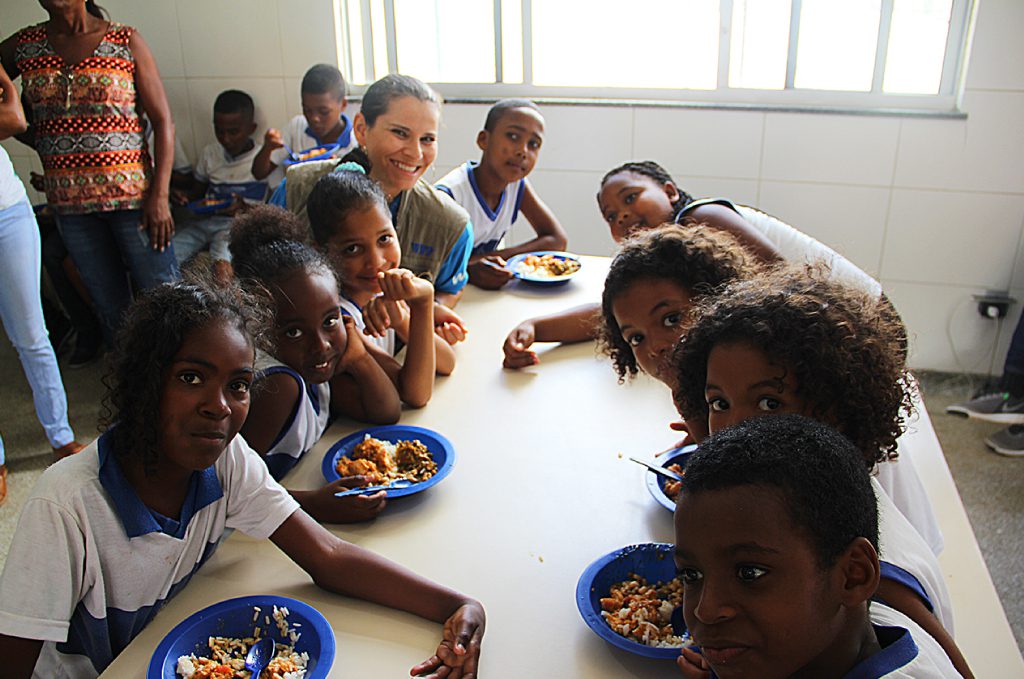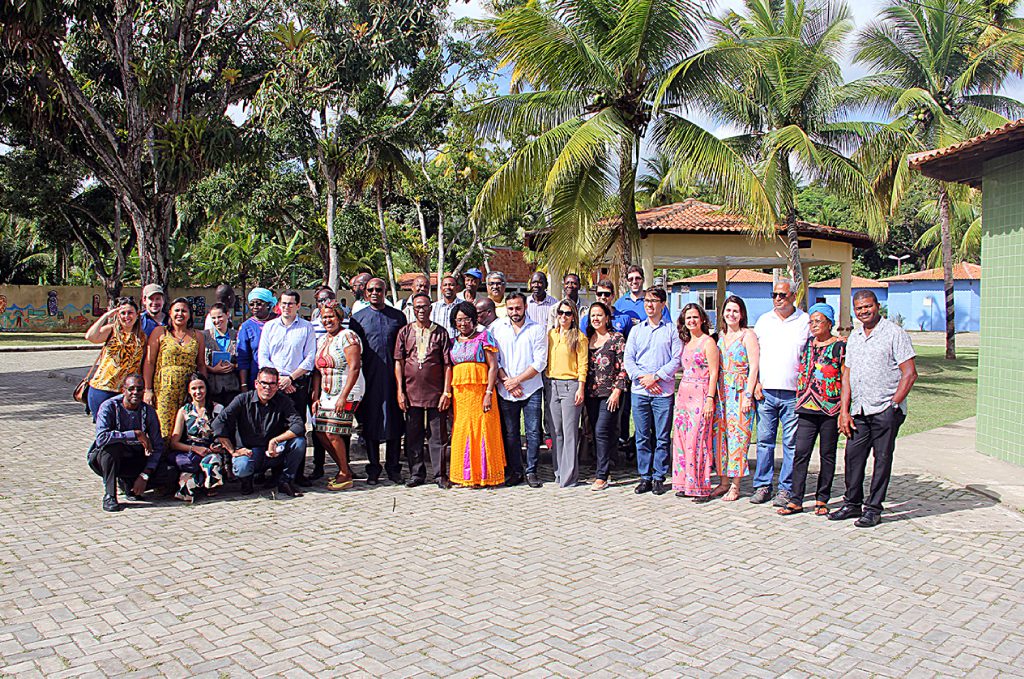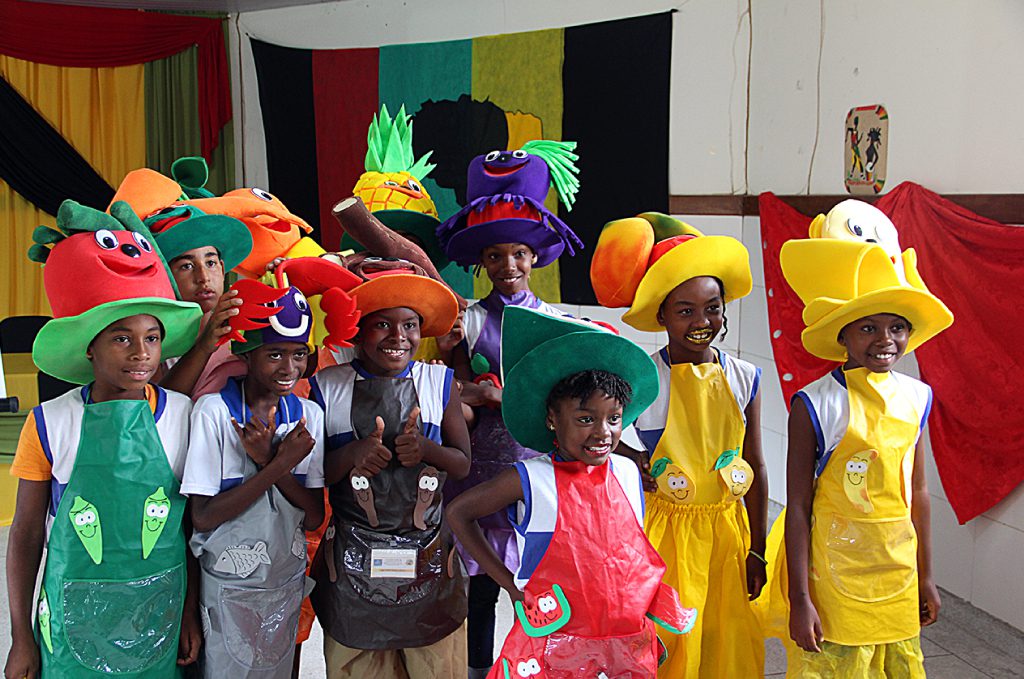
From 27 to 31 August, the WFP Centre of Excellence against Hunger received delegations from Senegal and Sierra Leone for a study visit focused on school feeding. The governmental delegations engaged in knowledge exchange activities with Brazilian officials in Brasília and undertook a field trip to Salvador, Bahia state, to see first-hand the links between school feeding and smallholder farming.
The visit was organized by the WFP Centre, the Brazilian Cooperation Agency (ABC), and the Brazilian National Fund for the Development of Education (FNDE), responsible for Brazil’s school feeding programme. The World Food Programme’s offices in Senegal and Sierra Leone supported the participation of the governmental delegations.
Opening session
The delegations were received at the Brazilian Ministry of Foreign Affairs by Ambassador Fernando Abreu, under-secretary general for Africa and Middle East. The Ambassador highlighted the importance of Brazilian relations with African countries. André Saboia, coordinator of humanitarian cooperation at ABC, Rogério Lot, chief of staff at FNDE, and Francisco Bezerra, director-president at CONAB, were also in attendance.

At the opening ceremony, the director of the WFP Centre of Excellence, Daniel Balaban, said, “the school feeding programme is good for education, as children can better learn when they are well fed; is good for health, because children have fewer illnesses; is good for agriculture, because it helps smallholder farmers production and boosts food supply in the country; is good for the economy, since it generates income for rural families; and is good for social development. It is a single programme that impacts at least five major areas, corresponding to five ministries.”
Emily Kadiatu Gogra, deputy minister of Basic and Secondary Education in Sierra Leone highlighted her government’s commitment to implementing a sustainable school feeding programme in the country. “It is a gold opportunity for us to be here exchanging ideas with Brazil and the WFP Centre of Excellence”, she said.
Serigne Mbaye Thiam, minister of Education in Senegal, said, “this inspiration is important. With this strong political will and this support, we will have a universal school feeding programme that reaches every child in Senegal. It is possible to do it.”

Field trip
The two delegations undertook a field trip to Salvador, in Bahia state, in the Northeast of Brazil. The goal of the field trip was to show to the delegations the integration between school feeding and smallholder farming and the benefits of this link. They visited farmers in the municipality of Camaçari and had the opportunity to talk to them to understand how they supply their produce to local schools and what kind of support they receive from public institutions. They also visited a local public school, to understand the process from the school point of view.
Participants visited a public school located in Maré Island, on the coast of Salvador, where they were presented food education initiatives. They discussed with school representatives the local public schools network, focusing on schools located in maroon communities.
The representatives of the two countries prepared an action plan at the end of the study visit with following steps.




